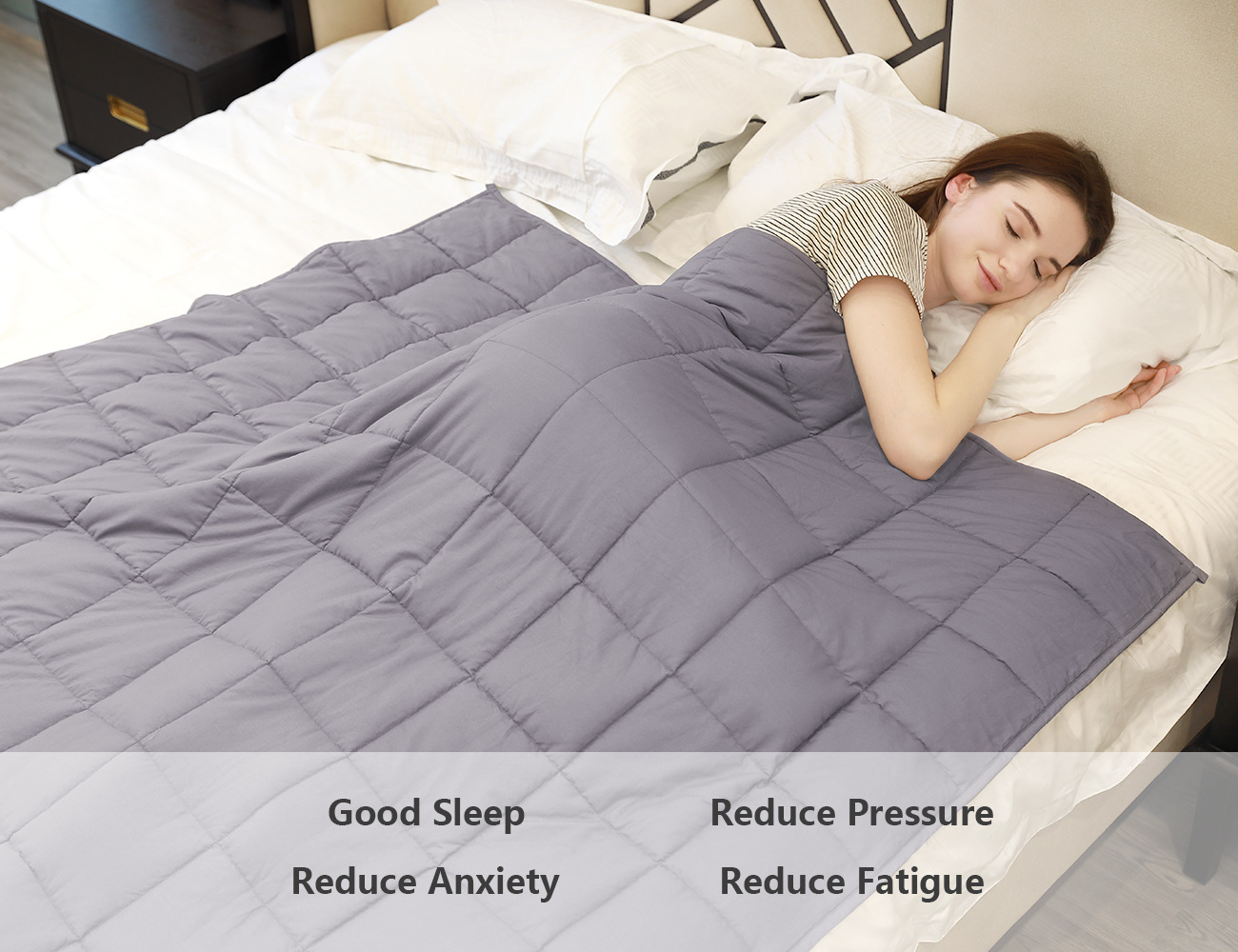The weighted blankets (6kg to 8kg in the experiment) not only significantly improved sleep in some people within a month, they cured the majority of insomniacs within a year, and also reduced symptoms of depression and anxiety. This statement may not be unfamiliar to some people. Indeed, the clinical trial started in June 2018, which means that this opinion was already circulating on a small scale before the trial began. The purpose of this study was to evaluate the effect of weighted blankets on insomnia and sleep-related symptoms in patients with major depressive disorder, bipolar disorder, generalized anxiety disorder, and attention deficit hyperactivity disorder.
For the study, the researchers recruited 120 adults and randomly assigned them to two groups, one using a weighted blanket weighing between 6kg and 8kg, and the other using a 1.5kg chemical fiber blanket as a control group for four weeks. All participants had clinical insomnia for more than two months and were all diagnosed with psychiatric disorders including depression, bipolar disorder, ADHD or anxiety. At the same time, insomnia caused by active drug use, excessive sleep, taking drugs and diseases that affect cognitive function, such as dementia, schizophrenia, severe developmental disorders, Parkinson’s disease, and acquired brain injury, were excluded.
The researchers used the Insomnia Severity Index (ISI) as the primary measure, and the Circadian Diary, the Fatigue Symptom Scale, and the Hospital Anxiety and Depression Scale as secondary measures, and the participants’ sleep and daytime were assessed by wrist actigraphy. activity level.
After four weeks, the study showed that 10 participants reported that the blanket was too heavy (those who plan to try it out should choose the weight carefully). Others who were able to use the weighted blankets as normal experienced a significant reduction in insomnia, with nearly 60% of the subjects reporting at least a 50% reduction in their Insomnia Severity Index; only 5.4% of the control group reported a similar improvement in insomnia symptoms.
The researchers said that 42.2% of the participants in the experimental group had their insomnia symptoms relieved after four weeks; in the control group, the proportion was only 3.6%.
How to help us fall asleep?
The researchers believe that the weight of the blanket, which mimics the feeling of being hugged and stroked, can help the body relax for better sleep.
Mats Alder, Ph.D., corresponding author of the study, Department of Clinical Neuroscience, Karolinska Institutet, said: “We think the explanation for this sleep-promoting explanation is that the pressure exerted by a heavy blanket on different parts of the body stimulates touch, muscles and joints, similar to The sensation of pressing acupoints and massage. There is evidence that deep pressure stimulation increases parasympathetic excitation of the autonomic nervous system while decreasing sympathetic excitation, which is thought to be responsible for the sedative effect.”
The findings also showed that weighted blanket users slept better, had more energy during the day, felt less tired, and had lower levels of anxiety or depression.
No need to take medicine, cure insomnia
After the four-week trial, the researchers gave the participants the option to continue using the weighted blanket for the next year. Four different weighted blankets were tested at this stage, all weighing between 6kg and 8kg, with most participants choosing the heavier blanket.
This follow-up study found that people who switched from light blankets to weighted blankets also experienced improved sleep quality. Overall, 92 percent of people who used weighted blankets had fewer insomnia symptoms, and after a year, 78 percent said their insomnia symptoms had improved.
Dr William McCall, who was not involved in the study, told AASM: “The theory of embracing the environment holds that touch is a basic human need. Touch can bring comfort and security, so more research is needed to link bedding choice to sleep. quality.”
Post time: Sep-19-2022



